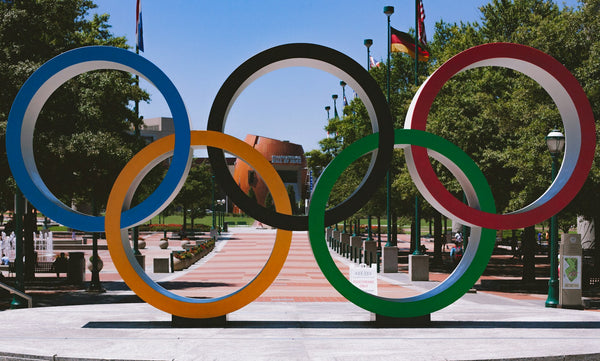Unveiling the Ancient Origins of the Olympics

The Olympic Games, a testament to human athleticism and international camaraderie, trace their origins back to ancient Greece. It all began in the sacred valley of Olympia, where, in 776 B.C. the first recorded Olympic Games took place. These early Olympics were dedicated to Zeus, the king of the Greek gods, and were held every four years as part of a religious festival.
At its core, the ancient Olympics were more than just a sporting event; they were a celebration of Greek culture, religion, and unity. The Games served as a platform for city-states to showcase their prowess and vie for prestige and honor. Athletes from across Greece would gather to compete in various events, including foot races, boxing, chariot racing, and the pentathlon, which comprised running, jumping, discus throwing, javelin throwing, and wrestling.
The Olympic Games were deeply intertwined with the religious beliefs of the ancient Greeks. Olympia, the site of the Games, was home to the Temple of Zeus, one of the Seven Wonders of the Ancient World, where athletes would offer sacrifices and prayers to the gods before competing. The Games themselves were considered a form of worship, honoring Zeus and promoting physical excellence as a divine attribute.
Despite their religious significance, the ancient Olympics were also a symbol of peace and diplomacy. According to tradition, during the month-long truce known as the "Olympic Truce," all hostilities would cease, allowing athletes and spectators to travel safely to and from Olympia. This cessation of conflict fostered a sense of unity among the city-states and contributed to the spirit of fair play that defined the Games.
The ancient Olympics reached their zenith in the 5th and 6th centuries B.C. attracting athletes and spectators from all corners of the Greek world. The Games became a spectacle of grandeur, with lavish ceremonies, elaborate processions, and monumental statues adorning the sanctuary of Olympia. Victorious athletes were hailed as heroes, their names immortalized in poetry and song.
However, the glory of the ancient Olympics eventually waned with the decline of the Greek city-states and the rise of the Roman Empire. In 393 A.D. Emperor Theodosius I abolished the Games, deeming them pagan and incompatible with Christian beliefs. For over a millennium, the Olympic flame was extinguished, and the tradition lay dormant, relegated to the annals of history.
It wasn't until the late 19th century that the flame of the Olympics was reignited. Inspired by the ancient Games, French educator Baron Pierre de Coubertin spearheaded the revival of the modern Olympic movement. In 1896, the first modern Olympic Games were held in Athens, Greece, marking a historic return to the birthplace of the ancient Olympics.
Since then, the Olympic Games have evolved into the largest and most prestigious sporting event on the planet, transcending borders, cultures, and languages. Every four years, athletes from around the world gather to compete in the spirit of friendship, respect, and excellence, carrying on the legacy of the ancient Greeks who first embraced the ideals of fair competition and athletic prowess. Today, the Olympics continue to captivate the hearts and minds of millions, embodying the enduring power of sport to unite and inspire humanity.


Leave a comment